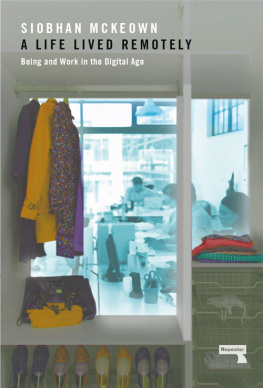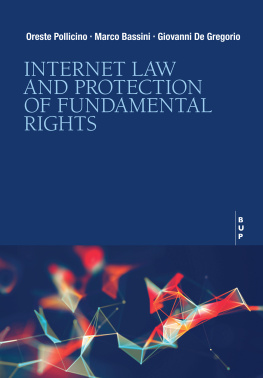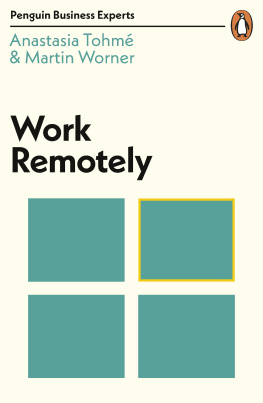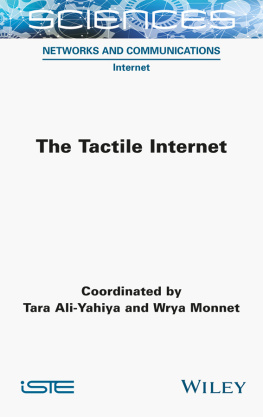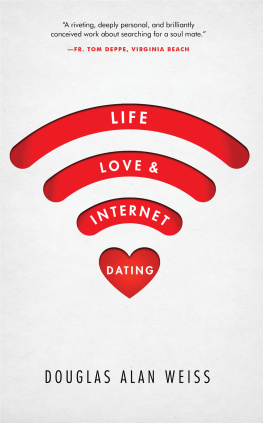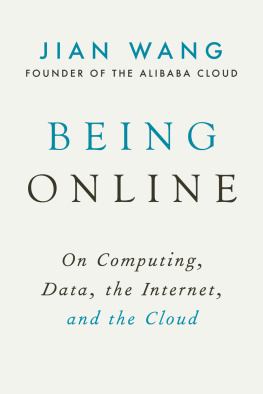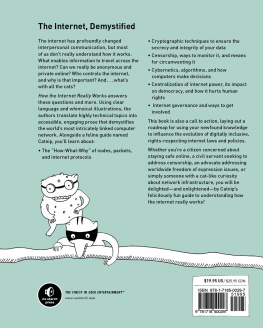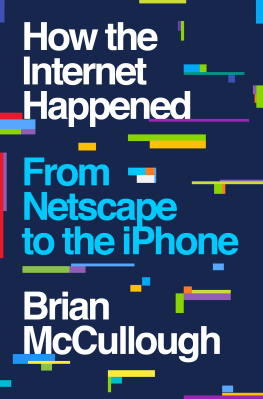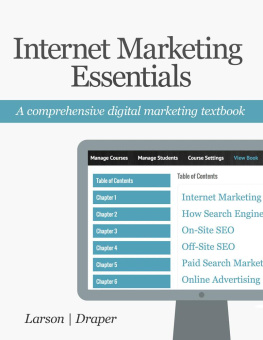A Life Lived
Remotely
A Life Lived
Remotely
Being and Work in
the Digital Age
Siobhan McKeown

For Mark, who is missed
This is how it always ends,
With death.
But first there was life.
Hidden beneath the blah, blah, blah.
It is all settled beneath the chitter chatter and the noise.
Silence and sentiment.
Emotion and fear.
The haggard, inconstant flashes of beauty.
And then the wretched squalor and miserable humanity.
All buried under the cover of the embarrassment of being in the world.
Beyond there is what lies beyond.
I dont deal with what lies beyond.
Therefore... let this novel begin.
Jep Gambardella, The Great Beauty
(Dir. Paolo Sorrentino)
INTRODUCTION
CRACKLES AND DIAL TONES
I grew up feeling like everything had already happened. I was living at the end of history. It was too late, I had already missed out. As a teenager in the 1990s I can say, confidently, with hindsight, that it was a cultural deadzone. Nineties nostalgia makes me cringe: New Labour, the YBAS, and Britpop. The stand-out event was the rivalry between Blur and Oasis. I felt permanently disappointed why couldnt I have been born earlier? Why couldnt my generation be defined by something more interesting? Everything felt so thoroughly boring, so settled. While the uk enjoyed a period of relative stability, I could only wonder is this it? I longed for the free-loving Sixties, punk of the Seventies, post-punk. Every band sounded like a poor repetition of earlier sounds. I was too young for the second summer of love and acid house; a week after I discovered Nirvana, Kurt Cobain shot himself in the head.
I was sure I had been born too late. I immersed myself in the music, art, and literature of the past, thought about gigs I would never go to, art movements that had already happened. But there was something new, though I wasnt able to pinpoint it then. It didnt come in the form of music or art, in protest or literature. It wasnt written or spoken or sung. It came along phone cables. It came in bytes. Its sound was crackles and dial tones. Its power was in connections.
In 1996, I was one of thirty-six million people who were connected to the internet. Thats about 0.9% of the world population at the time. We gathered in a cobbled-together place, one of animated gifs and background wallpapers. Our websites were garish, built on services like Angelfire and Geocities. Our text was big and bold, words embellished with Comic Sans, Trebuchet, Webdings, Verdana, and Impact. Advertisements flashed and banners scrolled with glittering text. We were unafraid of background textures or looping animations, our headers were alight with pixelated flames. We used colour with the exuberance of a child with its first pot of finger paints, placed gifs like stickers everywhere possible. It was a time of great ugliness, but also of great possibility. There was a brave new world in front of us, and we few had access to it.
I entered the internet through AOL, the ubiquitous gateway that constructed its own singular version of the web. For me, the internet was all about chat. The sounds of AOL Instant Messenger (AIM) stay with me today: the creak of an opening door that signalled a friend arriving online, the uh-oh sound of an incoming message. I stayed up all night, light switched off so my parents didnt realise I was still up, hunched over the computer, talking to people all over the world. It was incredible. I could speak to people I had never met, in places that I had never been. From my cold, dark room in the middle of nowhere outside Belfast, I was connected to the rest of the world, to the exclusive community of the internet.
In those nascent days of the World Wide Web, the internet was associated with pale-faced kids with big glasses who spent their lunch break in the computer lab. I kept my internet use to myself, maintaining a clear separation between IRL (in real life) and online. I had my teenage life where I would listen to The Doors and Pink Floyd and dream about bands so far before my time, and my online life, where I used Napster and Audiogalaxy to download their music. It was a magical time. I didnt come of age at an end; it was a beginning. The defining moment of my generation wasnt in culture or politics, it was in technology, and, for better or worse, its had a greater impact on our world than most of the things that I longed for.
Twenty years since I first logged on, and ten since my first online job, I, like everyone else, am hyperconnected. I dont just log on anymore to chat to random people in other countries: my life is transformed by the internet. I am connected in every way possible, through my laptop, my phone, my tablet, my games console, my television, my watch. I almost exclusively shop online. I communicate online, via email, blogs, messenger, or services like FaceTime or Skype. I use the internet to figure out where to eat or go on holiday. I stand in the middle of unknown cities and use my phone to find the best restaurants within walking distance without an internet connection in a new place I am lost. If I need to know something I look it up on Wikipedia. I stream music, watch films, read books and comics. I play womb noises on YouTube to sooth my crying child. I tweet on Twitter, blog on my blog, post semi-regular snippets of my life on Facebook. And, perhaps most importantly, I work.
It has been more than seven years since I worked in anything resembling an office. Like an ever-increasing number of people, my office is wherever I park my laptop. It can be my office at home, my sofa in front of the television, a coffee shop, a train station, a bar, an airplane, and sometimes even a beach. 95% of my communication is done using text, via chatrooms and messaging services. I work with people all over the world, in countries as disparate as Australia, Singapore, South Africa, Bulgaria, and the United States. Sometimes we meet, but most of the time we work from a distance, separated from each other but so connected that its often easier and quicker for them to reach me than for someone located in my home town.
The world has shrunk, places that were once far away are now close. I can make friends in any country, in any time zone, and we can communicate synchronously or asynchronously. The world may be smaller, bringing together things that were once remote, but with our heads in the clouds its easy for those things that are physically close to feel further away.
This book is formed from my reflections on working exclusively online since 2010. It is part-memoir, part-social theory, part-cultural theory, part-analysis. It reflects my own experiences of working online, and I hope that it resonates with the experience of others who work in similar conditions. It follows my own trajectory from when I quit my job to become an online freelancer, and uses my journey to explore the different issues at stake for people who work online. It is a book about work, about how the internet has changed the conditions for work, and the forces beyond work that have helped to prepare us for this world. Its main themes will be familiar to any remote worker: freelancing and remote companies, telework, relationships, communication, productivity, space, and travel. I have not stayed purely within the realm of the remote worker. To understand where we are today, to ask questions and interrogate these lives we lead, we need to look under the surface, beyond the everyday. A large part of this book looks at the technological and political changes that have created the conditions for the remote worker, and those invisible ideologies that create the fabric of the real. It is not a book that is intended to tell you how to work remotely, how to get a remote job, or how to run your online business. It is a book intended to help you reflect upon the conditions of work in this digital age.
Next page
